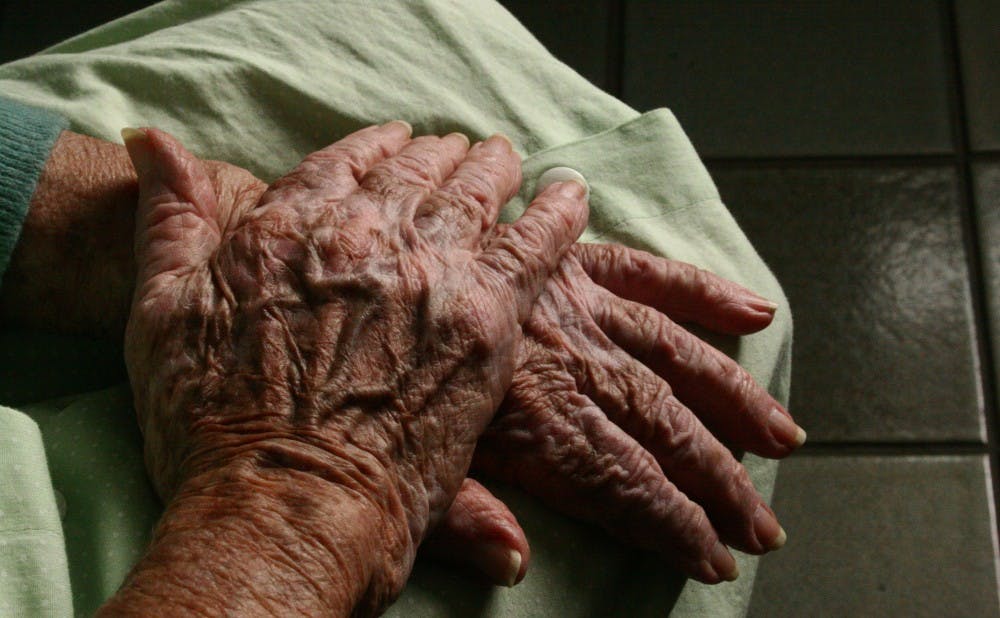As ageism among providers becomes a more realized issue, Duke is working towards implementing a program for medical students to interact with healthy older adults.
Duke University School of Medicine will follow the lead of at least 20 other medical schools around the country in its plans to implement a program about misperceptions around older patients. At Weill Cornell Medicine, the annual anti-ageism program lasts two hours, but Duke does not yet have similar program in place. The medical school is hoping to integrate one in a pending curricular reform.
“With the exception of pediatricians, everyone will be doing geriatrics and caring for older adults,” said Mitchell Heflin, associate professor medicine at Duke and medical resident '97. “I think we owe it to [students] to provide these experiences so that they graduate with skills in how to approach and provide care for older adults.”
In this curricular reform process, the medical school has considered the input of three committees. Liza Genao, specialist in geriatric medicine, sits on the clinical committee. Although it made no decisions regarding structure, the committee has pushed for more student interaction with older adults.
“One of the main things we recommended to the curriculum team was to consider early engagement starting in the first week of medical school, partnering with a senior in the community that they can follow over four years,” Genao said.
In the past, the School of Medicine has had similar programs in place. Up until 2013 when the program was canceled, groups of students followed seniors with specific conditions over five weeks. There was also a short-term pairing program for students to practice both social interaction and medical assessments.
“We have done something called the ‘senior mentor’ program in the past, where we connected Duke medical students with seniors living in the community in Durham,” Heflin said. “It was paired with a teaching session on care of older adults, where we focused on appreciation and understand for older adults’ experience.”
Until an official program exists, Heflin said providers who work with older adults like him and Genao will continue to try to get involved in the curriculum development and speak to students outside of geriatric-specific courses.
“In the medical school, in addition to trying to do direct lecture hall teaching and hospital teaching, it means working with the teachers who are surgeons and other specialists to get them tuned into special issues in care of older adults,” Heflin said. “They then teach that to their residents and students. It’s a trickle down effect.”
Heflin said he hopes this curricular reform will become a priority, especially with the push for age-friendly healthcare systems, prioritizing user-friendly and more person-oriented medical care as opposed to procedure-driven. At Duke, there is already an initiative to help older adults prepare for surgery and post-surgery outcomes.
With this move towards age-friendly healthcare accompanied by an ever-increasing senior population, Genao said it is crucial that all medical students understand how to interact with older patients beyond a medical context.
“Doctors who think about the patient as a person first, do patient-centered care, and are more empathetic are able to be more resilient to the stressors that medicine can bring,” Genao said. “They’re better equipped as physicians to be able to care for people.”
Get The Chronicle straight to your inbox
Sign up for our weekly newsletter. Cancel at any time.

